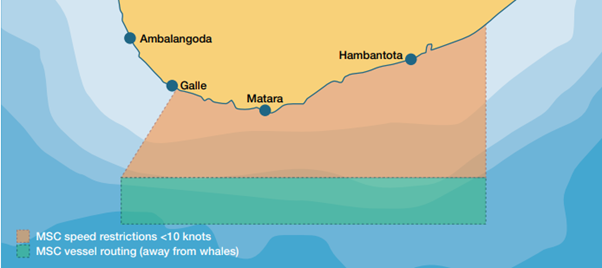WATCHOUT - Voluntary whale avoidance routing
In this series, we take a look at issues affecting the safety of mariners and the species with whom we share our oceans and seas.
Keeping a lookout and knowing when to move to avoid danger – or to avoid putting other vessels or marine mammals at risk – is one of the key skills for any mariner.
But better yet is not to be in a situation where the danger is going to occur. While you should always keep a lookout for whales, if you’re in the same place that many whales are gathering, for example, on a major migration route, there’s already a problem. Even better would be to make sure that your route avoids these areas at the planning stage.
Luckily, we already know the location of many of the areas where whales are likely to gather and feed, and when migrations are likely to occur, and that knowledge is getting better all the time. Many areas are subject to mandatory speed reductions or other restrictions on vessels in a bid to protect whales and other marine mammals. However, it is becoming more common for shipping companies to factor voluntary whale avoidance routing into their passage plans in a bid to avoid facing vessel strikes altogether. Even small changes, by a matter of a few nautical miles, can be enough to make a huge difference.
“Even small changes, by a matter of a few nautical miles, can be enough to make a huge difference”
For example, MSC has chosen to re-route its ships on the west coast of Greece with the specific aim of reducing the risk of collision with endangered sperm whales in the Mediterranean Sea. More than half of the sperm whales found stranded on the Greek coast in the region have displayed evidence of vessel strikes – more than any other whale population in the world. Studies have identified the Hellenic Trench, to the west and south of the Peloponnese and southwest of Crete, as a critical habitat for these whales. The area of most concern is currently a major container shipping route. Voluntary re-routing by companies to avoid the area is a substantial contribution to the survival of at-risk whales.
Similarly, the company has shifted its routes off the coast of Sri Lanka by 15 nautical miles to protect endangered blue whales and other marine wildlife. These decisions were taken following discussions with major environmental NGOs, to make sure the right moves were made in the right places. According to the NGO Coalition comprising the International Fund for Animal Welfare (IFAW), OceanCare and WWF Greece. “By making small re-routing changes, MSC is making a significant difference for these endangered whales… Now we need other shipping companies to show similar leadership – if all ship traffic using this area made these minor adjustments, the ship strike risk to sperm whales would be reduced by almost 75 percent.”

